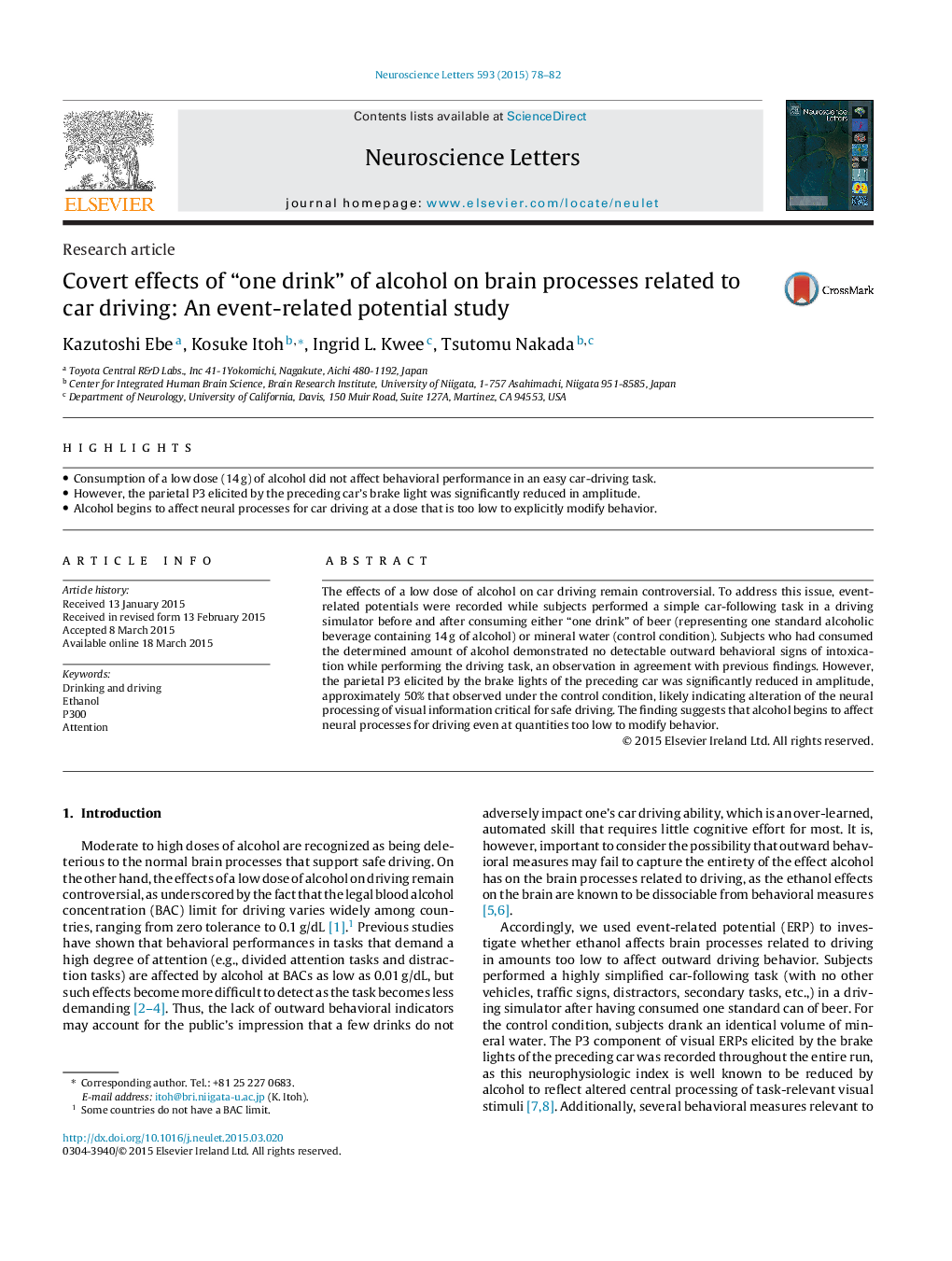| Article ID | Journal | Published Year | Pages | File Type |
|---|---|---|---|---|
| 4343528 | Neuroscience Letters | 2015 | 5 Pages |
•Consumption of a low dose (14 g) of alcohol did not affect behavioral performance in an easy car-driving task.•However, the parietal P3 elicited by the preceding car’s brake light was significantly reduced in amplitude.•Alcohol begins to affect neural processes for car driving at a dose that is too low to explicitly modify behavior.
The effects of a low dose of alcohol on car driving remain controversial. To address this issue, event-related potentials were recorded while subjects performed a simple car-following task in a driving simulator before and after consuming either “one drink” of beer (representing one standard alcoholic beverage containing 14 g of alcohol) or mineral water (control condition). Subjects who had consumed the determined amount of alcohol demonstrated no detectable outward behavioral signs of intoxication while performing the driving task, an observation in agreement with previous findings. However, the parietal P3 elicited by the brake lights of the preceding car was significantly reduced in amplitude, approximately 50% that observed under the control condition, likely indicating alteration of the neural processing of visual information critical for safe driving. The finding suggests that alcohol begins to affect neural processes for driving even at quantities too low to modify behavior.
